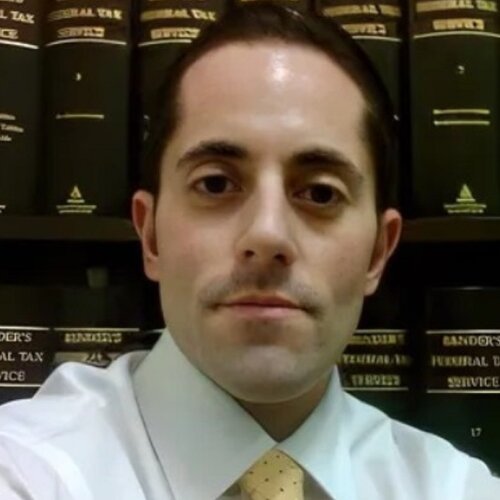Best Elder Abuse Law Lawyers in Massachusetts
Share your needs with us, get contacted by law firms.
Free. Takes 2 min.
Or refine your search by selecting a city:
List of the best lawyers in Massachusetts, United States
About Elder Abuse Law in Massachusetts, United States
Elder Abuse Law in Massachusetts is designed to protect adults aged 60 and older from various types of harm, including physical, emotional, and financial abuse, as well as neglect and self-neglect. The Commonwealth takes elder abuse seriously, enacting strict statutes to identify, report, and address abuse occurring in homes, assisted living facilities, or any location. Massachusetts law prioritizes the safety and well-being of elderly residents, ensuring that victims are given access to protection, support services, and justice.
Why You May Need a Lawyer
If you or a loved one is experiencing or suspects elder abuse in Massachusetts, legal guidance is highly recommended. Some common situations requiring legal help include:
- Suspected abuse or neglect by caregivers, family members, or in nursing homes
- Financial exploitation through scams, theft, or misuse of funds
- Seeking protective restraining orders or filing civil actions
- Challenging powers of attorney or guardianships abused by another
- Reporting abuse to proper authorities when unsure of next steps
- Pursuing compensation or restitution for harm suffered
- Navigating state investigations or criminal proceedings
A knowledgeable elder law attorney can help interpret your rights, represent you in court or agency hearings, and walk you through the process of reporting and stopping abuse.
Local Laws Overview
In Massachusetts, elder abuse is governed by several key statutes and regulations:
- Mandated Reporting: Massachusetts General Laws Chapter 19A, Section 15 requires certain professionals (such as healthcare workers, law enforcement, and social workers) to report suspected elder abuse to the local protective services agency.
- Definition of Abuse: Abuse includes physical, emotional, sexual abuse, financial exploitation, and neglect (by others or self-neglect).
- Protective Services: Once a report is made, the Department of Elder Affairs investigates and provides protective services to ensure the elder’s safety and well-being.
- Confidentiality: The identity of reporters and the details of the investigation are kept confidential.
- Legal Remedies: Victims can pursue restraining orders, criminal prosecution of abusers, restitution, and civil damages.
The Massachusetts court system and state agencies collaborate to enforce these protections and hold perpetrators accountable. Elderly individuals and concerned parties are encouraged to act quickly if they suspect maltreatment.
Frequently Asked Questions
What is considered elder abuse in Massachusetts?
Elder abuse includes physical assault, emotional distress, sexual abuse, neglect (including depriving basic needs), financial exploitation, and self-neglect. Abuse can be committed by family, caregivers, institutions, or strangers.
Who is required to report suspected elder abuse?
Certain professionals, known as mandated reporters (like doctors, nurses, social workers, police officers), must by law report any suspected elder abuse. However, anyone can and is encouraged to report suspected abuse.
How do I report suspected elder abuse?
Suspected abuse can be reported by calling the Massachusetts Elder Abuse Hotline at 1-800-922-2275, which is available 24 hours a day. Reports can be made anonymously.
What happens after abuse is reported?
The local protective services agency investigates allegations and, if abuse is confirmed, offers services to address the elder’s safety, including emergency protective orders or guardianships if necessary.
Is emotional or verbal abuse also covered by the law?
Yes, emotional and verbal abuse, such as intimidation, threats, humiliation, or isolation, are recognized forms of elder abuse under Massachusetts law.
Can I pursue legal action if I suspect financial exploitation?
Yes, an attorney can help pursue civil damages, restitution, or criminal charges against individuals who exploit or steal from elders. Courts may also order the return of assets or funds.
What protections are there for elders living in nursing homes?
Nursing home residents are protected under Massachusetts and federal regulations, which require facilities to ensure safety, prevent mistreatment, and provide proper care. Violations can result in fines, loss of licenses, or criminal prosecution.
What if I am being threatened or pressured not to report?
The law protects anyone who reports elder abuse in good faith from retaliation or legal liability. Confidentiality is maintained throughout the process to prevent harm to the reporter or the elder.
How quickly are abuse cases handled in Massachusetts?
Investigations are prioritized and must begin within 5 working days of the initial report, or immediately if the elder is at immediate risk of harm.
What should I do if I disagree with protective services’ findings?
You have the right to consult an attorney, request a review, or challenge the findings in court or through the state’s appeals process. An elder law attorney can explain your options and next steps.
Additional Resources
If you need more information or help, consider reaching out to these resources:
- Massachusetts Executive Office of Elder Affairs
- Massachusetts Elder Abuse Hotline: 1-800-922-2275
- Local Area Agencies on Aging (for casework, support, and advocacy)
- Greater Boston Legal Services (for legal representation)
- Massachusetts Bar Association Lawyer Referral Service
- Local District Attorney’s Elder Abuse Units
Next Steps
If you or someone you know is in immediate danger, call 911 for emergency assistance. For non-emergency situations, report concerns to the elder abuse hotline and seek guidance from a qualified elder law attorney. Prepare any available documentation, such as medical records, financial statements, or witness contact information, to support your case.
Schedule a consultation with a Massachusetts-based elder abuse attorney for specific legal advice. They can help you understand your rights, protect your interests, and navigate the complexities of state laws and procedures. Timely action is crucial to ensure the safety and well-being of elderly individuals who may be at risk.
Lawzana helps you find the best lawyers and law firms in Massachusetts through a curated and pre-screened list of qualified legal professionals. Our platform offers rankings and detailed profiles of attorneys and law firms, allowing you to compare based on practice areas, including Elder Abuse Law, experience, and client feedback.
Each profile includes a description of the firm's areas of practice, client reviews, team members and partners, year of establishment, spoken languages, office locations, contact information, social media presence, and any published articles or resources. Most firms on our platform speak English and are experienced in both local and international legal matters.
Get a quote from top-rated law firms in Massachusetts, United States — quickly, securely, and without unnecessary hassle.
Disclaimer:
The information provided on this page is for general informational purposes only and does not constitute legal advice. While we strive to ensure the accuracy and relevance of the content, legal information may change over time, and interpretations of the law can vary. You should always consult with a qualified legal professional for advice specific to your situation.
We disclaim all liability for actions taken or not taken based on the content of this page. If you believe any information is incorrect or outdated, please contact us, and we will review and update it where appropriate.
Browse elder abuse law law firms by city in Massachusetts
Refine your search by selecting a city.













